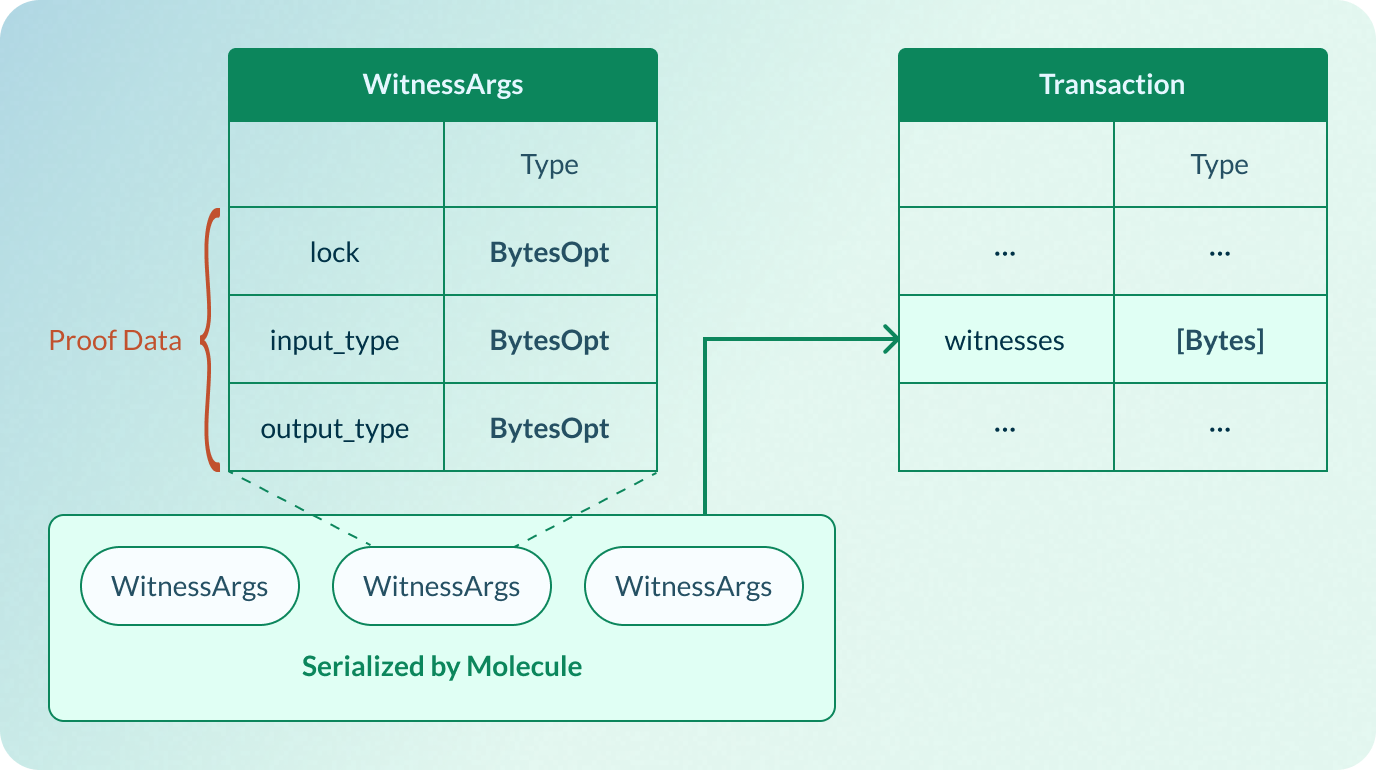witnesses
witnesses is provided by transaction creator to enable the successful execution of the corresponding Script. For example, signatures might be included to ensure a signature verification Lock Script passes.
In CKB convention, public key information is stored in the args of the Script, while signature information is in witnesses.
witnesses is a bytes vector. You can serialize any proof data required by the transaction into bytes vector in the witnesses field. The serialization can be done using Molecule or any other custom serialization method.
A transaction without the witnesses field is referred to as a Raw Transaction. The transaction hash is calculated from this raw transaction. However, the length of witnesses, which affects the transaction size, is considered into the transaction fee.
Conventional Usage
witnesses is highly flexible in CKB transaction, allowing the Scripts to use various methods to read witnesses data for transaction validation. To ensure compatibility and non-interference among Scripts, certain conventions are established. So far there are two: WitnessArgs and CoBuild.
WitnessArgs
WitnessArgs is an actively used convention in CKB community, with a structure including 3 fields:
table WitnessArgs {
lock: BytesOpt, // Lock args
input_type: BytesOpt, // Type args for input
output_type: BytesOpt, // Type args for output
}

Under this convention, each item in the witnesses field is a byte array serialized by Molecule from a WitnessArgs structure. Each WitnessArgs contains multiple proof data read by the input Lock Script, input Type Script, and the output Type Script. The order of WitnessArgs item in the witnesses field also matters, corresponding to the index of the virtual array created by the Scripts grouping.
CoBuild
CoBuild is a protocol that describes an off-chain procedure for multiple parties to collaboratively create a CKB Transaction. It also aims to create a composable and automation-friendly transaction witness layout standard, replacing the existing WitnessArgs.
However, CoBuild protocol is still in its early stage, so it is not widely used for the moment, and the standard is not finalized yet. You can learn more about CoBuild from the proposal.
For a detailed explanation of transaction structure, see RFC0022: CKB Transaction Structure.